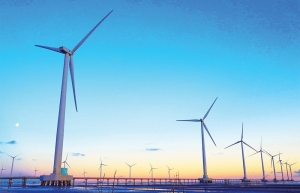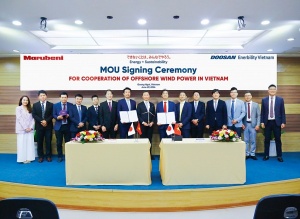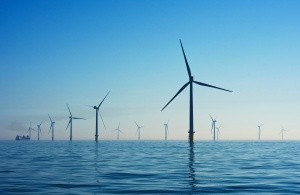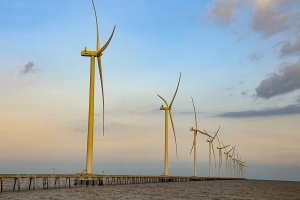Investors expect engagement for offshore wind
I believe that with the strong determination of the government, some necessary regulatory decisions and approvals can be achieved within the next 3-6 months. They may include the amended Electricity Law, the pilot mechanism for OSW development, the implementation plan of the national Marine Spatial Planning with clearer details for OSW development, and policies and procedures to allow offshore survey activities to commence.
 |
| Stuart Livesey, chief representative, Copenhagen Infrastructure Partners in Vietnam |
Additionally, under the Electricity Law and the pilot mechanism, the government should be enabled to assign developers (state-owned enterprises such as PetroVietnam and Vietnam Electricity) to implement the first offshore projects. Based on these proposals, there is the need to give state-owned enterprises a mandate to select and utilise competent international partners that have experience and appropriate funds to deliver OSW ventures.
With the progress in the legal framework, it is expected that the first OSW projects in Vietnam, including the pilot and the export project, can be kicked off with specific progress within the next one year, and top-down decisions and specific pilot mechanisms need to focus on enabling this.
As with other countries that have started their OSW journey, there is no need to have a fully prescriptive and detailed regulatory framework in place.
Pilot projects delivered under basic regulations can be used as a learning mechanism to develop more detailed regulatory procedures and also seek to encourage a competitive auction-based approach for the second and third rounds of offshore schemes.
Regarding the local supply chain, some suppliers are planning to invest in Vietnam in new factories to produce important components for OSW construction such as wind turbine towers and monopiles. We have seen strong signals from those who are delivering offshore infrastructure for other markets, and there is additional potential which should be utilised or Vietnam’s offshore ventures in a cost-competitive market. This is a positive signal, demonstrating local suppliers being prepared for Vietnam’s future OSW projects.
Firstly, there should be a priority to pass the amended Electricity Law with approval from the National Assembly in the October sitting, enabling a format for pilot projects to be established uniquely, while more detailed and well-considered regulatory frameworks are established for the second and third round of ventures to be delivered in the mid-2030s, potentially.
Secondly, we expect the pilot mechanism to be issued towards the end of 2024, allowing state-owned enterprises to cooperate with foreign investors to develop the first OSW initiatives in Vietnam. We should not expect a complete legal system for OSW right from the start – many other markets have instigated a special mechanism to allow new energy industries to commence.
It would be useful for Vietnam to initially utilise a flexible legal system that can evolve based on the progress and implementation of the pilot projects, similar to how Vietnam’s oil and gas industry began at its early stages.
Thirdly, appropriate offtake mechanisms with a rate of return based on a fixed feed-in tariff or set internal rate of return would enable investors to commit at the start of the industry when risks and uncertainties are high – these can be assessed then in relation to the revenue that will be generated while selling the electricity.
For foreign investors, they expect Vietnam to soon develop incentive mechanisms to encourage investment in the OSW industry. Specific electricity prices should be determined before financial close, after the investors finalise the total investment and have time to engage with suppliers to get final costs for the infrastructure and logistics involve, to encourage the developers to implement the projects on schedule to enjoy price incentives.
It is important to recognise that the benefits such schemes will provide in terms of economic stimulus to the supply chain and work force in Vietnam. Tier 1 suppliers for foundations, offshore substations, wind turbine towers and more can all benefit directly, and Tier 2-3 suppliers will also see a boost.
 | Measures for offshore wind must be carried out rapidly Vietnam’s ambition to achieve 6GW of offshore wind capacity by 2030 is increasingly adrift, with not enough work carried out on legalities and developer support. |
 | Doosan Vina and Marubeni team up for offshore wind power Doosan Enerbility Vietnam (Doosan Vina) has entered into an agreement with Japan’s Marubeni Corporation to jointly develop offshore wind power in Vietnam. |
 | Progress demanded for offshore wind The Ministry of Industry and Trade has proposed that two state-owned energy corporations or military-run units be selected to develop offshore wind power projects, although the sector is still struggling with complex processes. |
 | Norway’s Equinor pulls out of Vietnam’s offshore wind market Norway's state-controlled energy giant Equinor ASA has pulled out of Vietnam's offshore wind sector and shut down its Hanoi office. |
 | Obstacles to offshore gas and wind power to be removed The Government Office has just issued a notice on removing difficulties for offshore gas and wind power projects. |
What the stars mean:
★ Poor ★ ★ Promising ★★★ Good ★★★★ Very good ★★★★★ Exceptional
Related Contents
Latest News
More News
- Trung Nam-Sideros River consortium wins bid for LNG venture (January 30, 2026 | 11:16)
- Vietnam moves towards market-based fuel management with E10 rollout (January 30, 2026 | 11:10)
- Envision Energy, REE Group partner on 128MW wind projects (January 30, 2026 | 10:58)
- Vingroup consults on carbon credits for electric vehicle charging network (January 28, 2026 | 11:04)
- Bac Ai Pumped Storage Hydropower Plant to enter peak construction phase (January 27, 2026 | 08:00)
- ASEAN could scale up sustainable aviation fuel by 2050 (January 24, 2026 | 10:19)
- 64,000 hectares of sea allocated for offshore wind surveys (January 22, 2026 | 20:23)
- EVN secures financing for Quang Trach II LNG power plant (January 17, 2026 | 15:55)
- PC1 teams up with DENZAI on regional wind projects (January 16, 2026 | 21:18)
- Innovation and ESG practices drive green transition in the digital era (January 16, 2026 | 16:51)

 Tag:
Tag:




















 Mobile Version
Mobile Version